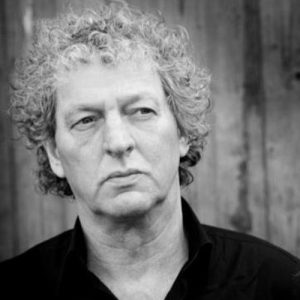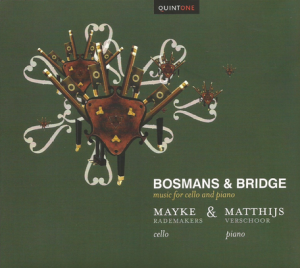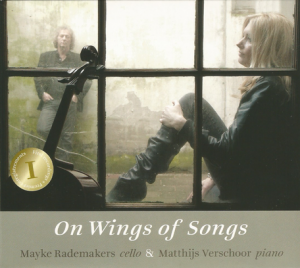Sonata
for cello and piano
1919
BBC Radio 3
Composer of the week
excerpts
 It was in 2005 that the eminent cellist Mayke Rademakers called me to ask if I was interested to play with her. Well, I didn’t have to think long about that. At the first rehearsal she had brought 3 sonatas: Rachmaninoff, Bridge and… Bosmans. I knew the name Henriëtte Bosmans, but had never played anything of her music before. Since then, her Sonata and the beautiful ‘Nuit Calme’ have not disappeared from our repertoire and we have performed these pieces countless times at home and abroad with pleasure and success, and also recorded it on a CD.
It was in 2005 that the eminent cellist Mayke Rademakers called me to ask if I was interested to play with her. Well, I didn’t have to think long about that. At the first rehearsal she had brought 3 sonatas: Rachmaninoff, Bridge and… Bosmans. I knew the name Henriëtte Bosmans, but had never played anything of her music before. Since then, her Sonata and the beautiful ‘Nuit Calme’ have not disappeared from our repertoire and we have performed these pieces countless times at home and abroad with pleasure and success, and also recorded it on a CD.
The Sonata is a masterpiece. Powerful, cinematic, unruly and compelling. ‘Nuit Calme’ a beautiful and original night music, that already seems to presage ‘Louange’ by Messiaen, from his ‘Quator pour la fin du temps’.
 As a matter of fact, I think that her Sonata deserves to be revised and re-published. There are quite a few inaccuracies in the current edition.
As a matter of fact, I think that her Sonata deserves to be revised and re-published. There are quite a few inaccuracies in the current edition.
We hope we can also perform her music frequently again in our new home country Italy in the 2021-2022 season. Her music deserves that.
– Matthijs Verschoor, pianist
BOSMANS & BRIDGE CD
(Quintone Records, 2007)

DUO Matthijs Verschoor & Mayke Rademakers
Not long after Matthijs & Mayke Rademakers heard each other playing, they picked up the phone with mutual desire – based on musical recognition and true love for this repertoire – to perform extensively together as a duo.
Historical background
Women’s voting rights 1919 in the Netherlands
An important event took place in the Netherlands which contributed to a feminist wave. In 1898, the Nationale Tentoonstelling van Vrouwenarbeid 1898 (tran. The National Exhibition of Women’s Labor) in Den Haag was organized. The organization wanted to promote women’s work with lectures, congresses, music and other performances, providing insight into products made by women, working conditions and wages. The exhibition had 90.000 visitors. During this exhibition Cornélie van Oosterzee conducted a cantata written for this occasion. In the Netherlands, women won the right to stand for an election as a candidate in 1917 and in 1919, the gained full suffrage.
